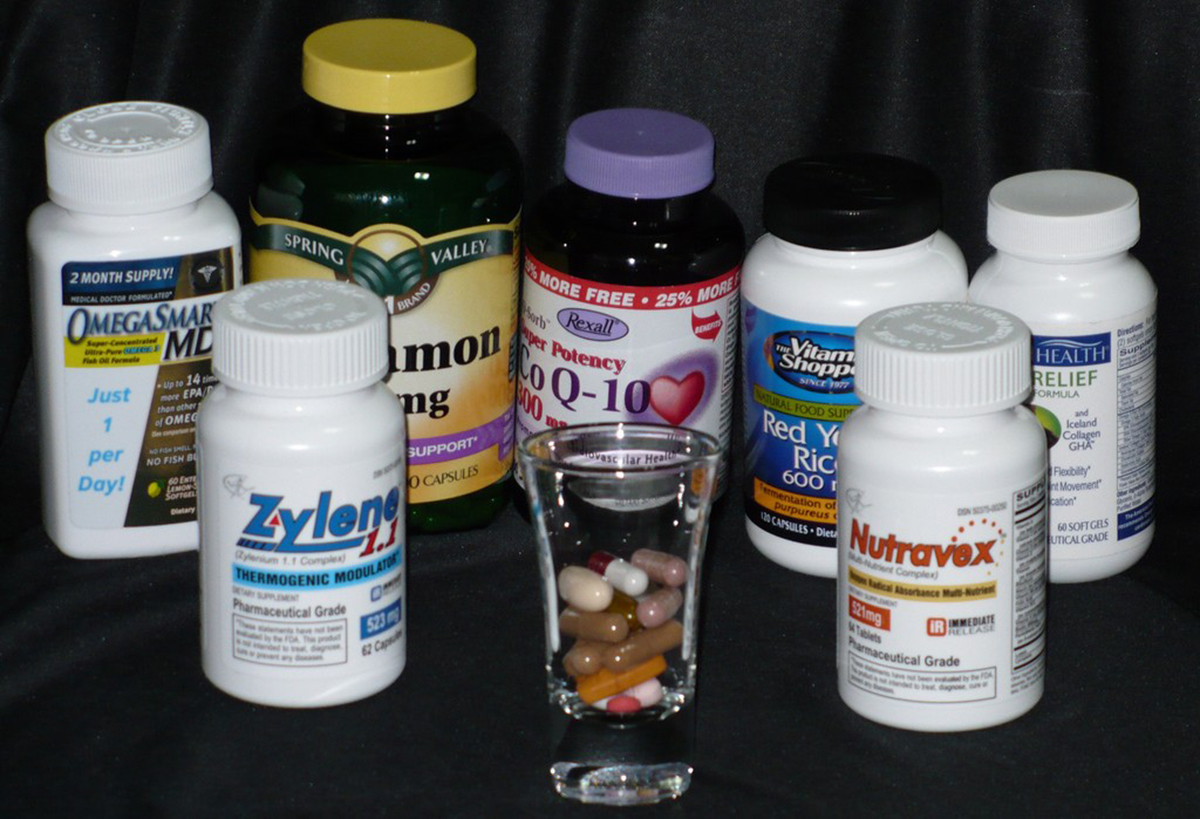Table of Contents
A more surprising, and recent, analysis by the US Preventive Services Task Force is now challenging the commonly accepted belief that increasing the intake of both vitamin D and calcium is a good preventive measure for bone fractures in older adults.
There is no question that both compounds are important for good bone health as they are essential for the formation of bone cells and also for a properly-functioning metabolism. But this study, which examined the conclusions of a number of clinical trials, demonstrates that, after all, we're still lacking the solid evidence that giving supplemental doses of vitamin D and calcium is beneficial for men and postmenopausal women.
Postmenopausal women are at a higher risk for osteoporosis and, as a consequence, for bone fractures. As a consequence, many commercial supplement products containing both vitamin D and calcium specifically target these women. The data available to this day is still insufficient to assume that the potential benefits of the intake of this combination of substances surpasses its potential harms.
As this study reminds us, in spite of the chance of this occurring being small, ingesting certain levels of vitamin D and calcium can result in the formation of renal (kindey) stones. All in all, more research is needed to assess the true value of combining vitamin D and calcium to prevent fractures. The data available so far point to the little, if any, effect of such supplement combinations.

Vitamins and dementia: Conflicting evidence
Several studies assessed yet another assumed effect of multivitamin supplements: the beneficial action in preventing normal cognitive decline associated with age. This group of researchers followed a group of almost six thousand people, aged 65 year or older, for a total of 12 years.
These findings match the results from another important review of 12 clinical trials that evaluated the effects of B vitamins, vitamins E and C and others in people with mild cognitive impairment or mild to moderate dementia. None of these supplements tested so far improved the cognitive function of older adults. The findings contradict a number of earlier reports that suggest that vitamin supplementation provides moderate benefits in reducing the risk of dementia. More research needs to be done to clarify this question, which means the answer is far from settled at the present moment.
See Also: Benefits Of Vitamin D Called Into Question
Many more studies, reviews and recommendations have been conducted on this somewhat controversial topic and they have consistently reached the same conclusion: not all vitamin supplements are helpful.
In special circumstances, such as in the face of a vitamin deficiency severe enough that it cannot easily be corrected through improved diet, vitamin supplements are extremely useful. In other situations, however, they are not. These substantial facts have, of course, an impact on public health and clinical practice. Therefore, more research is needed to establish the real influence of vitamin supplements on human health.
In the meantime, it is prudent for individuals to remember that, regardless of the potential benefits of multivitamins that may or may not exist, vitamin supplements can never, and must never, replace a healthy diet consiting of real foods.
- MILLER, E. R., JURASCHEK, S., ROBERTO PASTOR-BARRIUSO, BAZZANO, L. A., APPEL, L. J. & GUALLAR, E. 2012. Meta-Analysis of Folic Acid Supplementation Trials on Risk of Cardiovascular Disease and Risk Interaction With Baseline Homocysteine Levels. American Journal of Cardiology, 106, 517-527
- MOYER, V. A. 2013. Vitamin D and Calcium Supplementation to Prevent Fractures in Adults: U.S. Preventive Services Task Force Recommendation Statement. Annals of Internal Medicine, 158, 691-696
- HUANG, H.-Y., CABALLERO, B., CHANG, S., ALBERG, A. J., SEMBA, R. D., SCHNEYER, C. R., WILSON, R. F., CHENG, T.-Y., VASSY, J., PROKOPOWICZ, G., II, G. J. B. & BASS, E. B. 2006. The Efficacy and Safety of Multivitamin and Mineral Supplement Use To Prevent Cancer and Chronic Disease in Adults: A Systematic Review for a National Institutes of Health State-of-the-Science Conference. Annals of Internal Medicine, 145, 372-385
- GUALLAR, E., STRANGES, S., MULROW, C., APPEL, L. J. & III, E. R. M. 2013. Enough Is Enough: Stop Wasting Money on Vitamin and Mineral Supplements Annals of Internal Medicine, 159, 850-851.
- Photo courtesy of meaduva by Flickr : www.flickr.com/photos/meaduva/457094816/
- Photo courtesy of Raymond Gilford by Flickr : www.flickr.com/photos/shuttercat7/2346508078/


Your thoughts on this